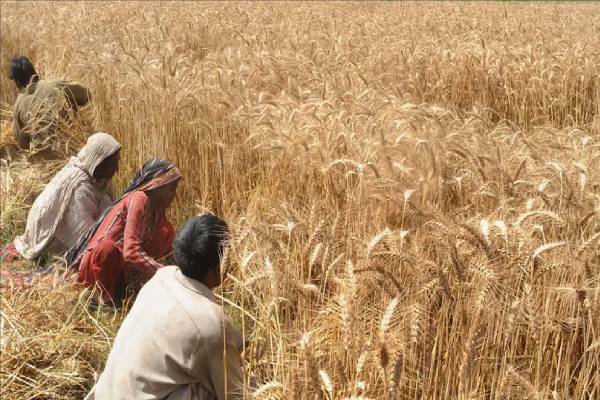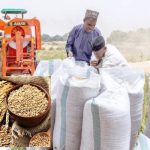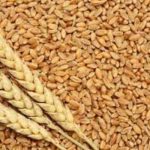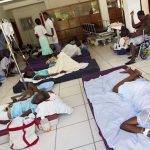The Central Bank of Nigeria says it has set up N42 billion to speed up wheat production on 132,799 hectares spread across 15 states in the country.
This was stated by Godwin Emefiele, Governor of the Central Bank of Nigeria, at the launch of the 2021/2022 Brown Revolution Field Day/Harvest in Gabarin village, Ringim Local Government Area, Jigawa State.
Emefiele, represented by Hajiya Sa’adatu Ibrahim, CBN Controller, Dutse Branch, stated that the facility was provided to address challenges in the wheat value chain during the 2021/2022 dry season activities.
He explained that the strategy was centered on making high-yield seed varieties available through a local seed multiplication program and extending wheat growing land through partnership with state and federal authorities.
According to him, the apex bank aims to increase the annual cycle for wheat cultivation during the wet season through international partnership and the promotion of Good Agronomic Practices.
This, he said increased wheat growers’ income, resulting in more job creation and a ready supply for millers.
Ibrahim also stated that the bank trained over 250 extension workers with a total reach of over 120,000 farmers in order to cascade learning to farmers in their respective locations via the GAP.
According to him, in partnership with the Flour Milling Association of Nigeria, the apex bank identified, vetted, and cultivated demonstration farms to comprehensively exhibit the better protocol for wheat growing in Nigeria and the impact of GAP on high yields to farmers.
According to him, the aim is to reduce the gap by a minimum of 15% during the 2021/2022 planting season
Emefiele stated that the bank distributed N975.61 billion to over 4.52 million smallholder farmers cultivating 21 agricultural commodities, among other interventions aimed at addressing financing needs to improve the agricultural value chain.
In his remarks, FMAN Chairman John Coumantaros stated that the organization was dedicated to providing a market for the country’s wheat farmers.
Coumantaros, represented by Segun Flade, stated that the organization was expanding its procurement across the wheat-producing states by adding aggregation, staff, and warehouses.
“Specifically, under the CBN-ABP scheme, we’re establishing procurement centers across 15 northern states to offtake all wheat grain from up to 150,000 farmers,” he said.
Kano, Kaduna, Jigawa, Kebbi, Sokoto, Bauchi, Adamawa, Katsina, Gombe, Plateau, Taraba, Zamfara, Niger, and Yobe were among the states he mentioned.
The Chairman also stated that the association would cultivate 504 demonstration farms in the states in order to provide GAP training to 250,000 farmers under the ABP, as well as loans to over 2,000 out growers farmers in Kano, Jigawa, Sokoto, Kebbi, Kaduna, Bauchi, and Gombe States.
“Seed production expansion with six certified seed companies, including both dry and wet season seed production to produce enough seed for 5,000 out growers next season,” he said.
“Research and trials on FMAN’s 10-hectare research farm in Jigawa to test new seed varieties and improve agronomic practices, including collaboration with the Lake Chad Research Institute, among others.”
“A portion of it also includes grant funding for the National Agricultural Seed Council to expand their capabilities to test seed quality, certify seed production, and train farmers to distinguish high-quality seed from others on the market.”
In separate remarks, farmers Dauda Ali, Alkasim Aliyu, and Muhammad Ado praised the CBN and FMAN for their efforts to increase wheat production in the country.
Ali stated that the new farming techniques introduced had helped them achieve higher harvest yields.
He also encouraged the Jigawa State Government to construct an access road to make moving produce to markets easier.














